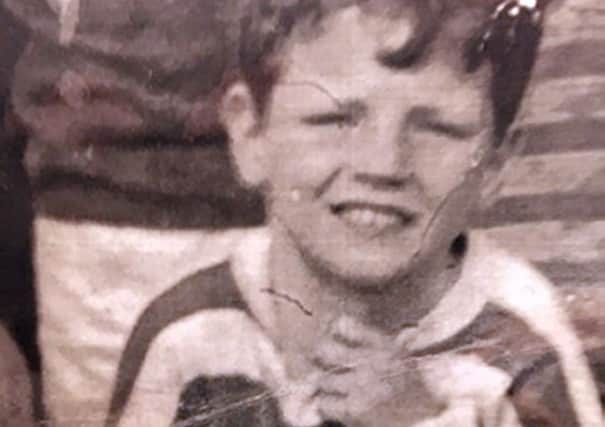Soldiers did nothing to help boy, 11, hit by rubber bullet, inquest told


The soldiers got out of their armoured vehicle, walked over to a heavily bleeding Francis Rowntree, picked something off the ground, then got back in the transporter and drove off, Bernadette Connolly told Belfast coroner’s court.
Eleven-year-old Francis died on April 22 1972 - two days after he was struck on the head by a rubber bullet while walking through the Divis Flats complex close to Belfast’s Falls Road.
Advertisement
Hide AdAdvertisement
Hide AdThe baton round was fired from a Humber Pig Army vehicle by a Royal Anglian Regiment soldier.
The Army was in the area responding to an outbreak of rioting in what was one of the most violent years of the Northern Ireland Troubles.
The case is mired in controversy with disputed claims on whether Francis was hit directly or injured by a ricochet, and if the bullet had been doctored to make it potentially cause more harm.
A fresh inquest has been ordered by Northern Ireland’s Attorney General John Larkin.
Advertisement
Hide AdAdvertisement
Hide AdGiving evidence on the fifth day of the inquest, Ms Connolly, who was 13 at the time, said she was walking home from school when she heard a baton round being fired.
She turned round to see a young boy lying on the pavement near a wall and an Army vehicle pulling in to the roadside close by.
She told coroner Brian Sherrard she observed two soldiers getting out of the back of the vehicle and walking over to the prone boy.
“I thought they were going to help,” she said.
“I didn’t know who the boy was but I thought automatically they were going to give him some assistance.
Advertisement
Hide AdAdvertisement
Hide Ad“But they were looking for something, they were searching for something and they picked something up and got back in the Saracen and drove off.”
Ms Connolly said she then rushed over to Francis. She said he had a “horrific” head injury and was “covered in blood”.
“I remember screaming for help because he was so severely injured,” she said.
She insisted there was no rioting going on in the area at the time.
Advertisement
Hide AdAdvertisement
Hide AdThe injured boy was taken to Ms Connolly’s sister’s flat and transported on to hospital in an ambulance. Ms Connolly travelled with him in the ambulance and held his hand on the journey.
She said in the wake of the incident, adults in her sister’s flat were expressing concerns about a doctored bullet, with talk a battery might have been fired at Francis.
“I just remember because of the severity of the injuries there was discussion among the adults that it was a doctored rubber bullet,” she said.
Asked by a Ministry of Defence barrister how clear her memory was of events 44 years ago, she replied: “It’s a day I’ll never forget - it’s just etched on my mind.”
Advertisement
Hide AdAdvertisement
Hide AdMartin Wolfe QC, representing the MoD, challenged Ms Connolly’s evidence.
Noting that she had told the court, under oath, she did not know what the soldier had picked up, he referred to notes from a discussion she had with investigators from the police’s Historical Enquiries Team (HET) in 2010 in which she apparently claimed a soldier picked up a “battery”.
Mr Wolfe told the witness: “That was a lie to blacken the Army.”
Ms Connolly denied she had lied.
Mr Wolfe continued: “You told the HET you saw a soldier pick up a battery, causing the HET to think that a battery had been fired at Francis Rowntree, when you knew it to be untrue.”
Advertisement
Hide AdAdvertisement
Hide AdMs Connolly claimed the difference in her accounts could be due to failing memory related to health issues.
“I am not lying, I have been on a lot of medication because of health issues and my memory has been affected over the last few years but, on that day, I remember specifically what happened,” she said.